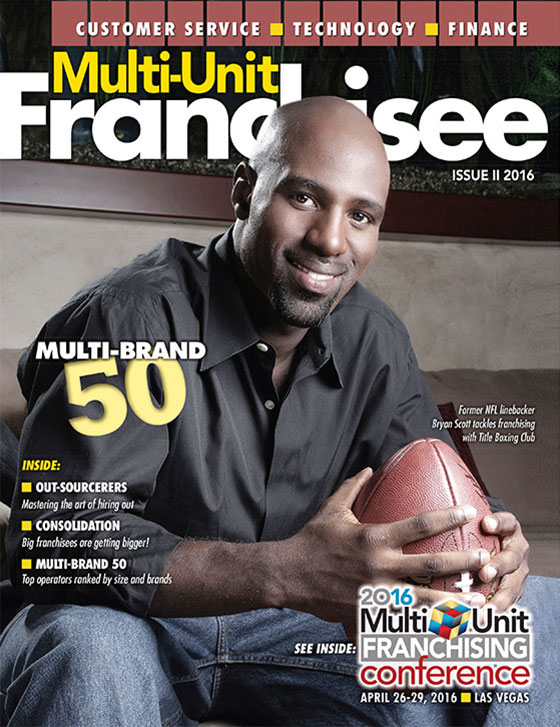Millennial Psychology: Bringing Out the Best in Your Up-and-Comers

As I'm sure you've noticed in your dealings with Millennials, there can be significant differences between their attitudes and those of the Baby Boomers. What makes Millennials tick? How do their minds work, and how can we use that understanding to increase productivity in our businesses? Do Millennial leaders buy into the cliché portrayal of their generation as self-entitled, impatient, and erratic in the workplace? How do Gen Xers and Baby Boomers view these individuals as they rise within management ranks and take on leadership roles?
Millennials have much higher levels of perceived self-importance than their predecessors, typically brought on by the protection and emotional cheerleading of their Boomer parents. They crave career growth and progression and search not only for success, but also for meaning in their jobs and everyday lives. That doesn't mean they are controlled by a sense of entitlement. It also doesn't mean they're not willing to work hard to achieve outcomes for their employers and to meet their own personal goals. It just means they are intrinsically motivated by different factors that require a slightly different management style.
So, what's the strategy? How do we play to their (or our) differences and maximize their true potential? Whether you're managing Millennials or you are a Millennial managing others, it's no longer a question of what makes this generation different--it's a question of how we maximize this generation's talent now that it's becoming the largest cohort in the workforce. Here are five tips on how to make that happen.
- Cultivate trust. Through their adoption of digital and mobile technologies, Millennials have become accustomed to having access to information, and expect as much from their superiors. They also expect to be treated as an important part of the business, regardless of age. Cultivate a sense of trust by allowing greater data access, opening up communication between your departments and hierarchies, and wrapping your communication in respect. Consistently tying the strategic agenda to projects, initiatives, or tasks will also help drive a sense of trust within this group.
- Give them meaning. Remember, Millennials want to feel meaning in their work. For some, this means helping them understand how their role affects the bigger picture. For others, it's letting them know, sincerely, that they are valued members of the team, and that their ideas are important. Regular, company-wide meetings help ensure not only organizational transparency, but also an opportunity for Millennials to express their own ideas. Let them lead the implementation of those (good) ideas and you might be amazed at how productive and inspired this "can-do" group will become. It's worth noting that if they don't find workplace fulfillment with you, they will look for it somewhere else.
- Challenge them. Millennials are problem-solvers and adept with newer technologies. As executives and managers, our job is to keep our employees engaged. By giving Millennials tasks and projects that test their problem-solving ability, you will inspire through enabling, and they will feel they have a vested interest in the success of their project. Layer this with company-wide recognition of their efforts, and you have a recipe for success.
- Let them get distracted. Millennials have an infamous reputation for being distractable, constantly seeking new challenges and stimulation. This typically manifests in their seeking employment elsewhere after being with your company for just a short time. Try indulging this distracted mindset. If they are successful employees with an urge to move to a new city or industry, encourage that growth and let them know they're welcome back if they decide to return. Closed-door policies are a thing of the past, and companies that allow their employees to test the waters elsewhere will ultimately improve their retention through loyalty. Millennials can be incredibly loyal. By meeting them on their level, you will gain their respect, hard work, and dedication.
- Remember their work ethic is different. Maintaining the status quo because "we have always done it this way" and the concept of "paying your dues" feels like a sign of disrespect to Millennials (justified or not). They are willing and eager to break the rules and take risks, and see this as a learning opportunity. Also, the "work to live" mentality abounds in this group. Balance is important. If given a promotion throws off their work/life balance, Millennials may turn it down. They no longer believe in a work day with success based on hours expended; they want to be evaluated on output, not input. That doesn't mean they aren't willing to invest the hours required to yield a desired output. Nor does it mean they are lazy, as the media tends to portray them. It means they are focused on efficiency, value, and the opportunity cost of lost time.
In simple terms, both Millennial and non-Millennial managers should focus on a few key areas with this group. Honor their optimism, their collaborative nature, and their desire for development. Realize that they are willing to work hard for what yields value; that they have an aversion for time-wasting procedures; and that they are the next generation of executives to lead our organizations. Those who are the most successful with shaping this generation into future leaders will see the biggest return on their talent investments.
Jason Conrad is vice president of marketing for PeopleMatter. Call him at 877-300-6222 or email to info@peoplematter.com.
Share this Feature
Recommended Reading:
Comments:
comments powered by DisqusFRANCHISE TOPICS
- Multi-Unit Franchising
- Get Started in Franchising
- Growth
- Operations
- Open New Units
- Leadership
- Marketing
- Technology
- Legal
- Awards
- Rankings
- Trends
- Featured Franchise Stories
FEATURED IN

Multi-Unit Franchisee Magazine: Issue 2, 2016
$550,000
$125,000




 The multi-unit franchise opportunities listed above are not related to or endorsed by Multi-Unit Franchisee or Franchise Update Media Group. We are not engaged in, supporting, or endorsing any specific franchise, business opportunity, company or individual. No statement in this site is to be construed as a recommendation. We encourage prospective franchise buyers to perform extensive due diligence when considering a franchise opportunity.
The multi-unit franchise opportunities listed above are not related to or endorsed by Multi-Unit Franchisee or Franchise Update Media Group. We are not engaged in, supporting, or endorsing any specific franchise, business opportunity, company or individual. No statement in this site is to be construed as a recommendation. We encourage prospective franchise buyers to perform extensive due diligence when considering a franchise opportunity.